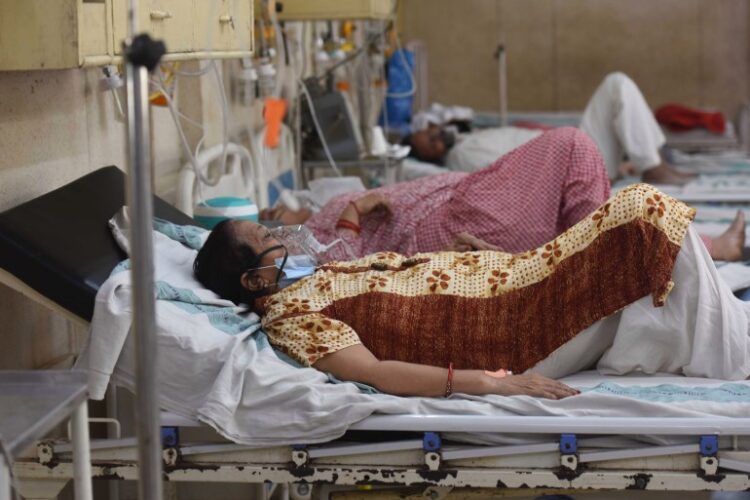-By Victoria Mckeown
Six hospitals in the Indian capital Delhi have completely run out of oxygen and doctors say other hospitals have just a few hours’ worth of supply left.
A number of people in India have died while waiting for oxygen, and more than 99% of all intensive care beds are full.
India today recorded the highest one-day tally of new Covid-19 cases anywhere in the world – and the country’s highest number of deaths over 24 hours, and has reported more than 300,000 coronavirus cases over the last 24 hours.
It is worth noting that in India, endemic illnesses already in the prevalent in the country before the onset of the pandemic, predisposes its inhabitants to the coronavirus.
Improper nutrition, environmental changes, air pollution and dietary influence, all lead to fever being the most claimed disease in the medical insurance policy of people. These pre-existing illnesses worsen the impact of coronavirus to the multipl weak immin systems in the highly populated country.
Apart from the infectious illnesses, such as, malaria, pneumonia and TB, Ischemic Heart Disease (IHD) is also a deadly killer. Besides fever and infections, heart diseases have become the most common ailments in India. Unhealthy lifestyle and dietary habits is the leading cause of such issues.
Its highest daily global total, while COVID-19-related deaths also jumped by a record, as a brutal second wave raises fears about the ability of the country’s health services to cope.
The country is struggling with a second wave, its health care system overwhelmed, preventing patients with other illnesses from being attended to by medical staff.
Crowds have gathered outside hospitals in major cities which are filled to capacity. A number of people have died while waiting for oxygen.
The epidemic has led to a number of countries to bring in stricter rules affecting travel to and from India amid fears over the rising cases.
Australia’s Prime Minister Scott Morrison said the number of flights between the two countries would be cut, while the UK has added India to a red list, restricting travel and bringing in hotel quarantine for all arrivals from India from Friday morning.
Oxygen supply has been a particular problem, with a number of hospitals in the capital Delhi running out entirely on Thursday, according to the city’s Deputy Chief Minister, Manish Sisodia.
Numerous other hospitals are understood to be running dangerously low on supplies, including one treating another Indian politician, Saurabh Bharadwaj.
Delhi legislature member Mr Bharadwaj posted a plea for help in Hindi on Twitter from his hospital bed, saying there were just three hours of oxygen left.
“A lot of people are dependent on oxygen and without oxygen, these people will die just like fish die in the absence of water,” he said, according to a translation by news channel NDTV. “This is a time for all to come together to work.”
The crisis worked its way to Delhi’s highest court on Wednesday, where judges publicly criticised the central government for its handling of the oxygen crisis in the city.
“This is ridiculous. We want to know what the centre is doing with regard to oxygen supply across India,” the judges said while reading out the verdict in a petition by the owner of six private hospitals.
On Thursday, as hospitals warned stocks were rapidly diminishing, Prime Minister Narendra Modi held a meeting to attempt to end the crisis. He asked officials to find ways to produce more oxygen, while telling states to come down “heavily” on anyone hoarding supplies.
Vaccine Doses
India has so far administered more than 130 million doses to most of its population, but the drive has been limited workers, frontline staff, those above the age of 45 and anyone with co-morbidities.
From 1 May, people above 18 will also be eligible for the vaccine. But a supply crunch, which is already affecting the drive, could slow it down further.




